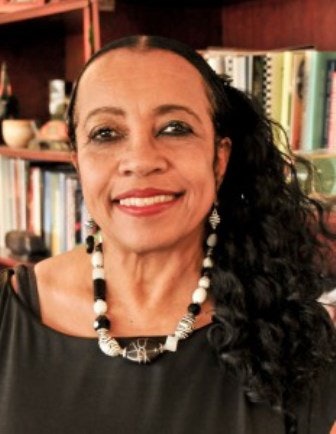NEW ORLEANS—More than 3,500 students, faculty and staff from colleges and universities across the nation are gathering here this week to engage in critical discussions about race relations on their college campus in particular, and in society in general.
This year’s meeting of the National Conference on Race and Ethnicity (NCORE) in Higher Education comes a day after comedian Roseanne Barr was fired from her sitcom following a racist tirade on Twitter directed at Valerie Jarrett, who served as a senior adviser during the Obama administration.
 Dr. Belinda P. Biscoe
Dr. Belinda P. BiscoeMany of the NCORE participants say they’ve witnessed the escalation of racist comments on college campuses in the year since President Donald J. Trump took office. The opportunity to meet and strategize on how best to promote diversity and inclusion has been the organization’s focus since it held its first convening back in 1988 on the campus of the University of Oklahoma.
“The community we establish this week represents one of the most important, comprehensive ongoing dialogues about race and inclusion in America,” said Dr. Belinda P. Biscoe, interim vice president of University Outreach and director of the Public and Community Services Division at the University of Oklahoma. “We are looking for ways to improve our campuses and our country and reimagine what equity and access mean for our institutions.”
Biscoe oversees the Southwest Center for Human Relations Studies, which houses NCORE.
For years, colleges and universities have sent representatives to the five-day conference to share best practices, strategize about diversity initiatives and engage in tough and difficult conversations about race.
Biscoe said participants are encouraged to reimagine how their colleges and universities can be more equitable and accessible, even as they work on improving campus climate issues. The recent wave of racial incidents on campuses across the nation should be reason for real alarm, said Symone Sanders, a political commentator on CNN who previously served as presidential campaign press secretary for U.S. Senator Bernie Sanders, I-Vt.
“While the whole world is going through a lot, our campuses are going through a lot,” said Sanders. “There is a lack of civility in our discourse. There is a lack of civility on television, online and on our college campuses.”
Sanders said that despite the challenges, a concerted effort needs to be made to promote dialogue that encourages mutual understanding.
“It is vitally important that we approach these conversations from a place of understanding,” said Sanders, who challenged the conference attendees to become radical revolutionaries who, like Dr. Martin Luther King, Jr., saw an injustice and decided to tackle it head-on.
“Radical revolutionaries identify work and then go and do it,” said Sanders, who at 28 has become active in social justice efforts. “Being a radical revolutionary means standing in the gap and being willing to access who is and who is not at the table.”
In the fight for social justice, Sanders told participants that they needed to be “accomplices” and not merely “allies.”
Sanders recalled the difficulties she faced on the campaign trail during the days when Bernie Sanders mounted a presidential challenge to Hillary Clinton for the Democratic nomination. As she traveled the nation on behalf of the senator, she said she frequently encountered individuals who were convinced that she was not a part of his senior staff.
Race, age and gender, she said, are topics she thinks about often.
“For me, every single time I leave the house, it is in fact about race,” said Sanders, who received steady applause during her keynote address. “NCORE, now is the time to do the things that haven’t been done before. Are you ready?”
Jamal Eric Watson can be reached at [email protected]. You can follow him on Twitter @jamalericwatson
















